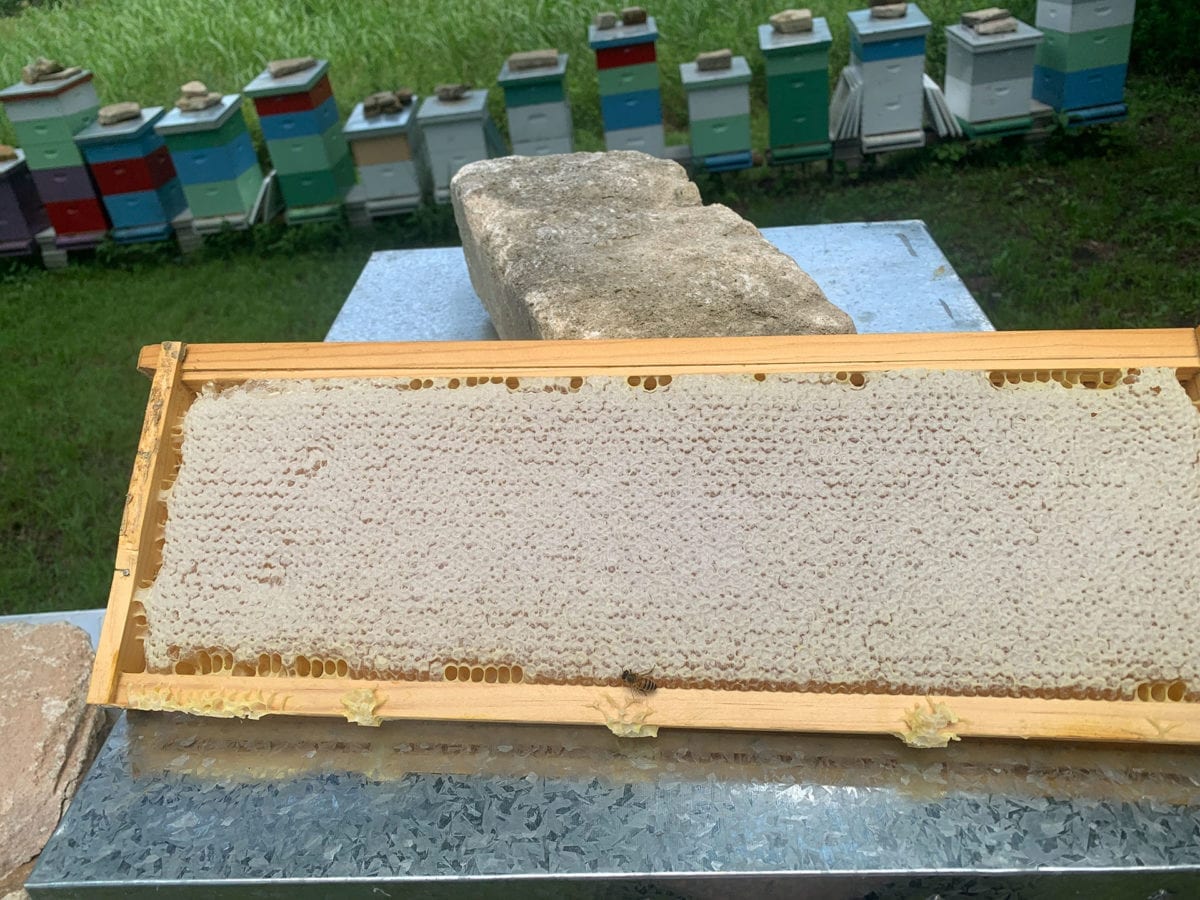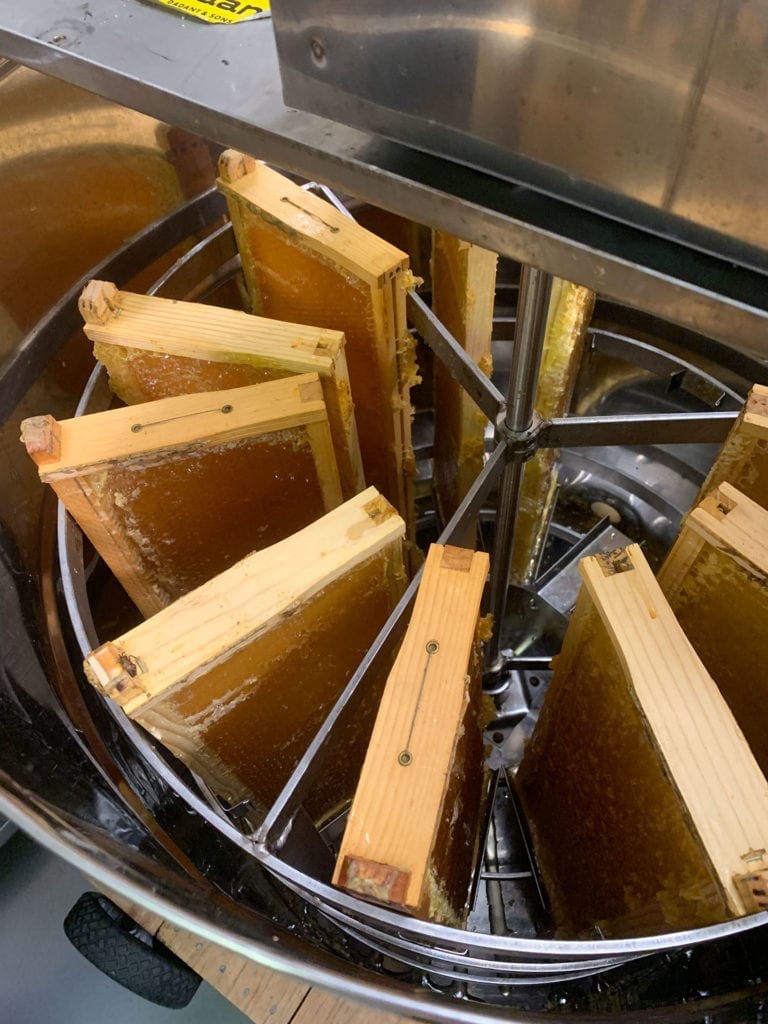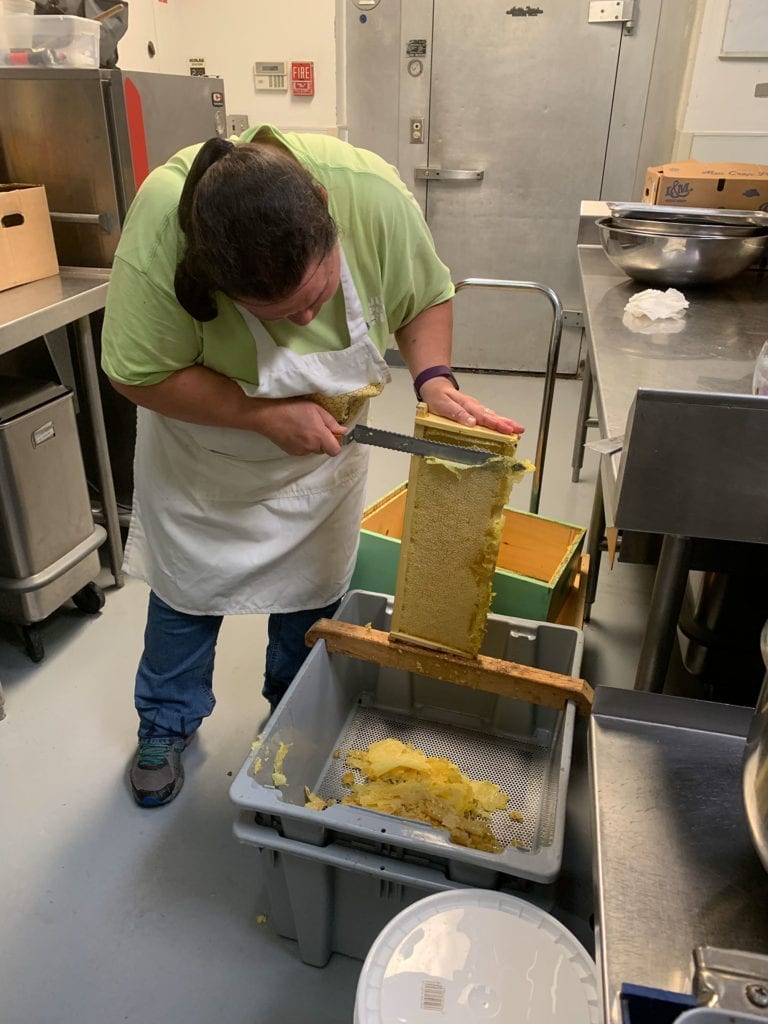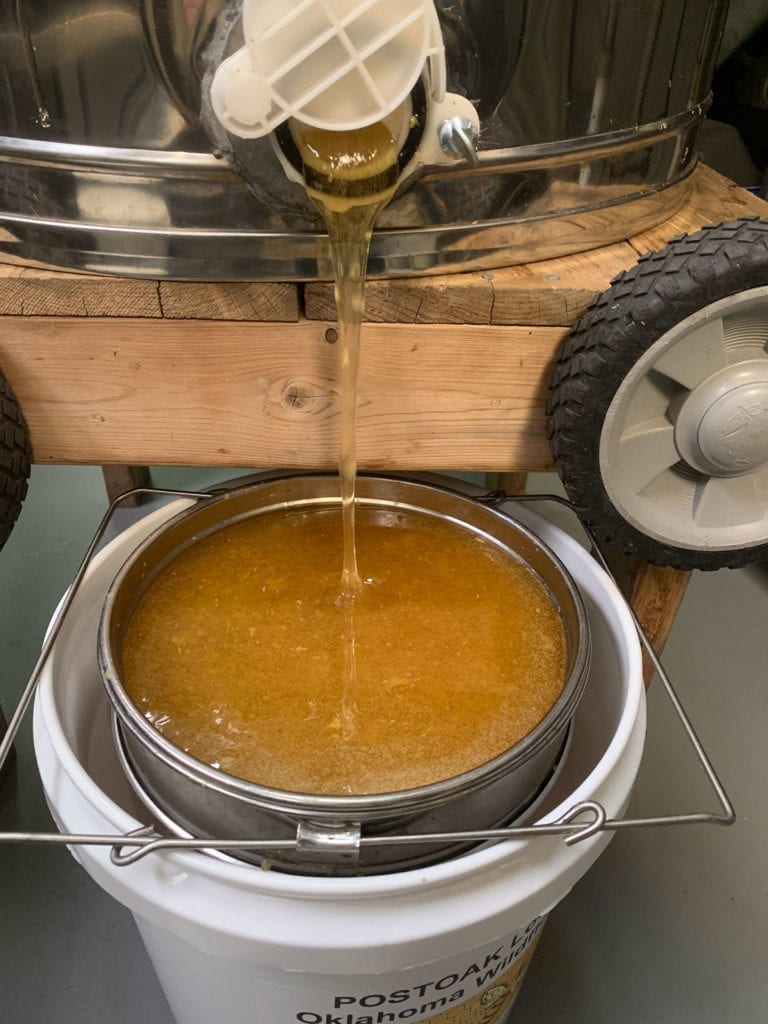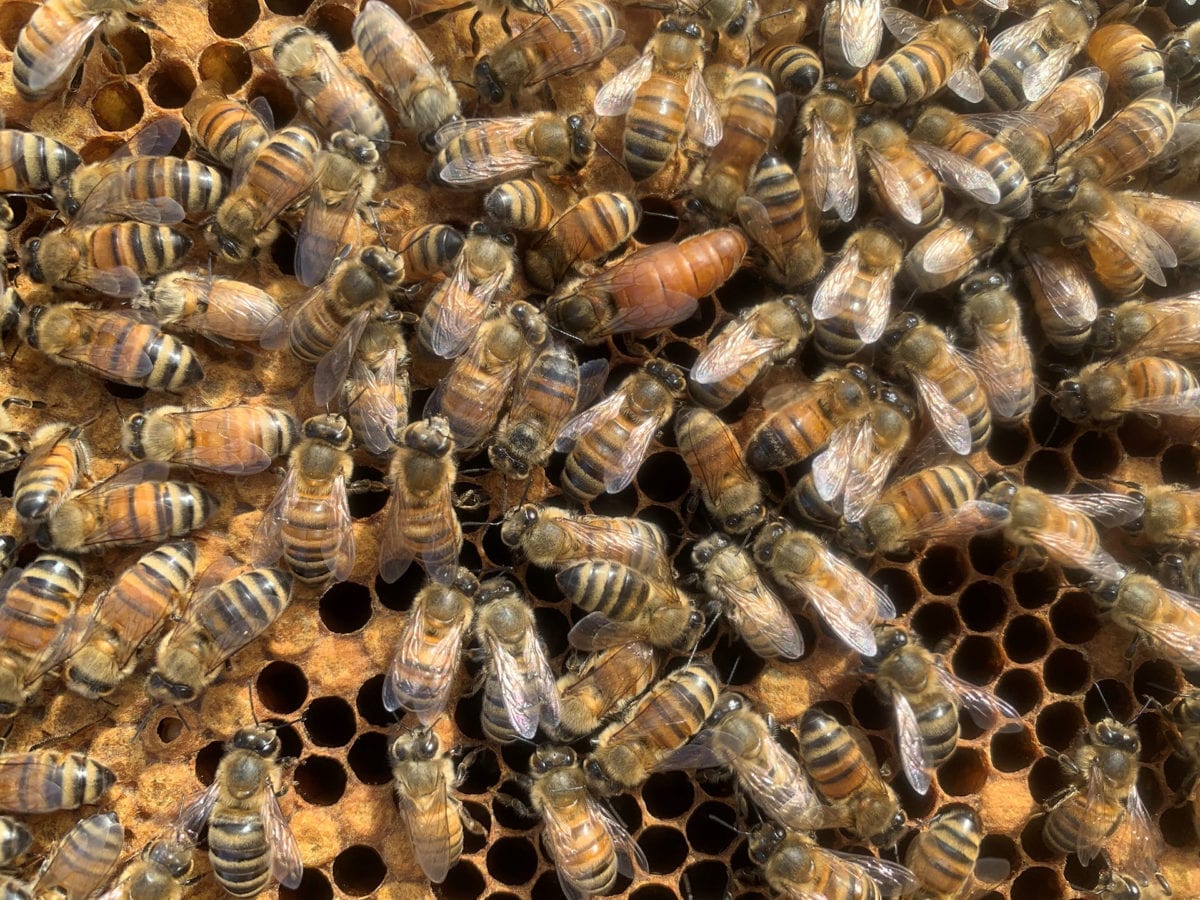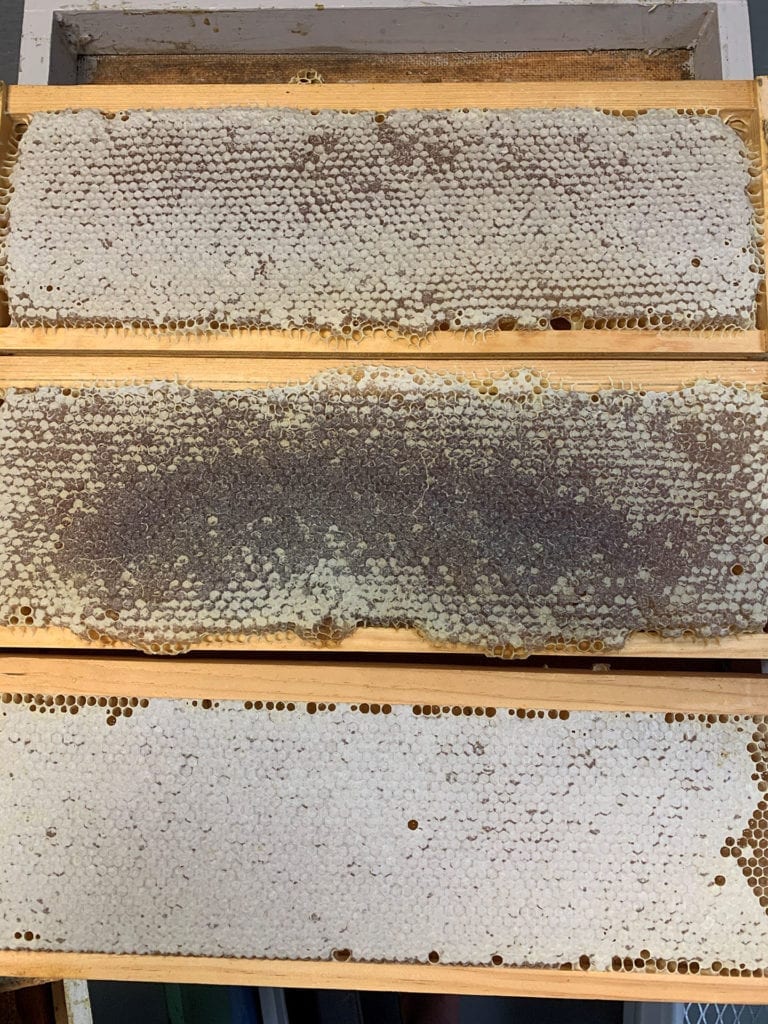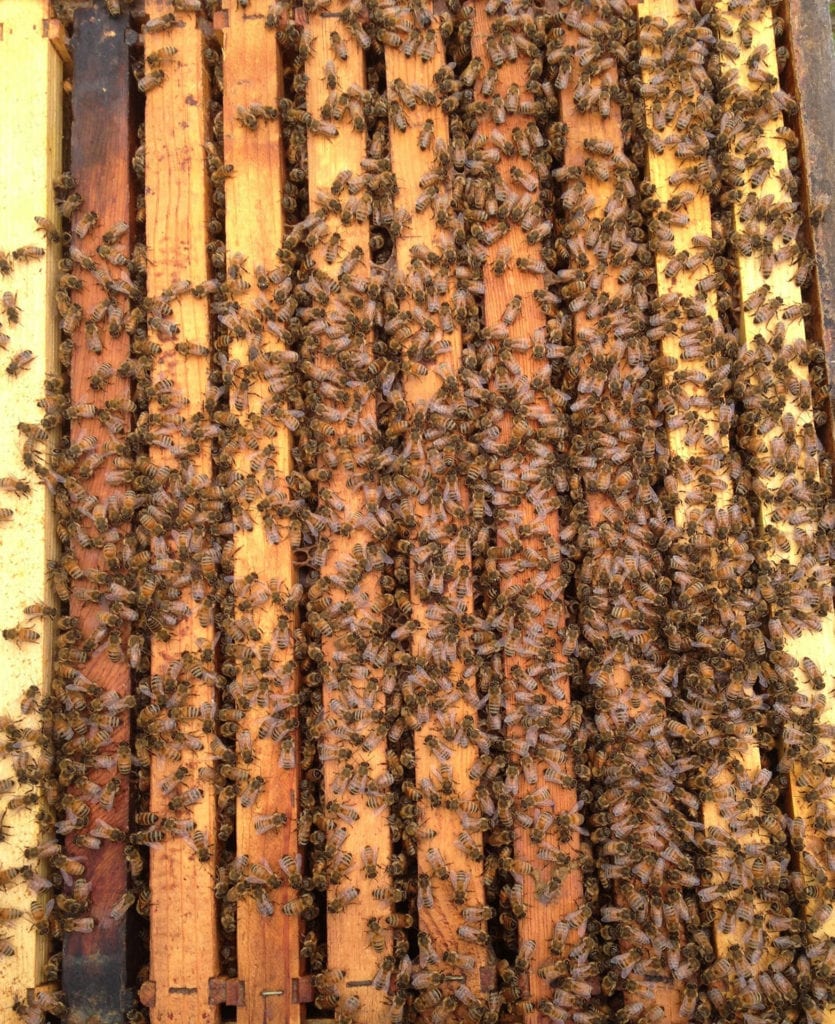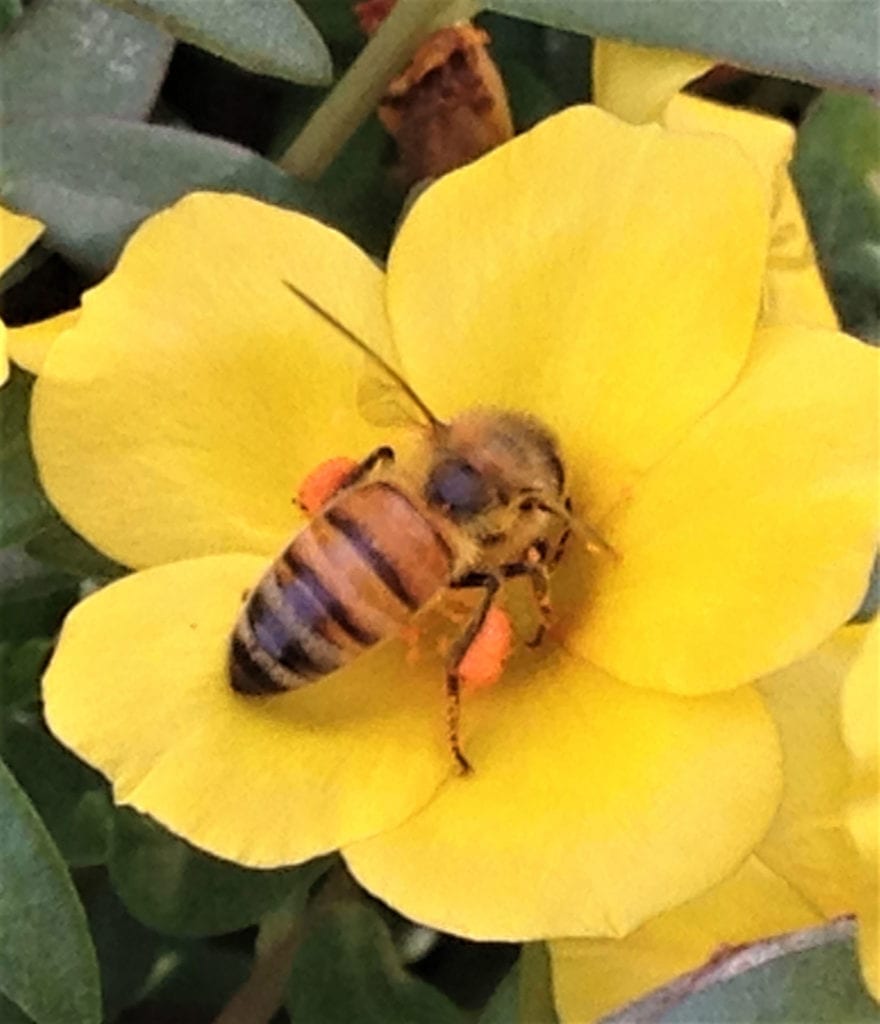Lori Beth McDonald thinks honeybees are fascinating. She loves the taste of honey, is sold on its dietary benefits and enjoys creating food and skincare products from her 40 hives. It’s a win all around for the owner of Tulsa’s Okie Bee Farms, who started her business after she was laid off from an IT job.
Honey, McDonald says, is “nature’s answer to processed sugar. I cannot tell you the last time I bought a bag of processed sugar. I don’t need it.”
Honey is more easily digested than sugar and has a lower glycemic index, she says, and “honey is three times sweeter than processed sugar, so you don’t have to use as much.”
Honeybees collect pollen from flowers and carry it in pockets on their back legs.
“They bring pollen back to the hive, which they ferment with nectar to make bee bread,” says McDonald. “That’s mostly what bees eat. Pollen has all kinds of vitamins and enzymes and quite a bit of protein. Vegetarians buy pollen from me because it gives them another protein source besides soy.”
Amy Roark, co-owner of Roark Acres in Jenks with her husband, Michael, says she thinks of pollen as “a superfood, like a multi-vitamin. It’s really good for you and helps build up your immune system.”
Roark says she takes a quarter of a teaspoon of pollen every day and chases it with water.
“I always say it tastes like sweet dirt,” she says.
Research indicates that eating raw honey and bee pollen can help with allergies.
Photos courtesy Okie Bee Farms
“I have had an increase in customers contacting me to buy raw honey for their pets,” McDonald says. “Their veterinarian recommended raw honey for their pet’s allergies.”
Honey is anti-bacterial, anti-microbial and can be used for wound care, says James Deming, owner of Tulsa’s Shadow Mountain Honey and Bee Rescue.
“Hospitals use bandages with medical grade honey in them to protect the wound and keep it from becoming infected,” says Deming. “That is definitely scientifically documented.”
Raw honey has better health benefits, McDonald says. Honey sold in grocery stores has likely been filtered and pasteurized, which removes and kills some of the pollen, probiotics and enzymes. It’s done to keep it from crystalizing, she says.
Deming says the Oxford University Medical School recently analyzed upper respiratory tract infections and determined honey was superior to the usual care methods for improvement of symptoms.
Honeybees also make propolis, which they apply to the inside of their hives to protect against the wind and invading insects. It’s made from nectar, pollen and tree sap and is used in soap, lotion and lip balm.
Deming says he makes a lotion bar from beeswax, which is a by-product of harvesting honey. The purified beeswax is mixed with coconut oil, shea butter and vitamin E oil.
“Customers say it’s helped with their eczema, and with their cracked hands from all the handwashing we are doing right now,” he says.
Honey Hubs
Gold Standard Honey, Adair
goldstandardhoney.com
918-530-1583
Shadow Mountain Honey
and Bee Rescue, Tulsa
shadowmountainhoney.com
918-520-4970
Queen Bri’s Honey,
Oklahoma City
queenbrishoney.com
405-314-8175
Roark Acres, Jenks
roarkacres.com
918-409-1138
Okie Bee Farms, Tulsa
okiebeefarms.com
918-855-8682






















